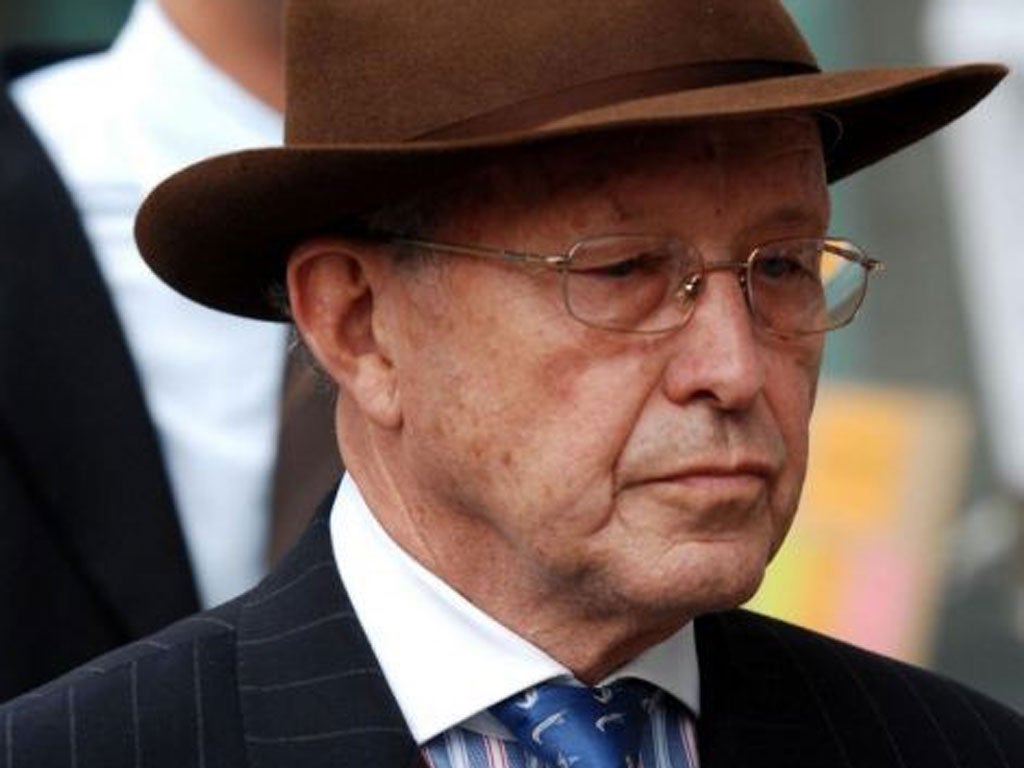MMR doctor John Walker-Smith wins High Court appeal

An eminent doctor was celebrating a dramatic victory today after the High Court ruled that a decision to strike him off over the MMR controversy was unlawful.
Professor John Walker-Smith had been found guilty of professional misconduct following accusations of taking part, without ethical approval, in controversial research that caused a global scare by suggesting a link between the MMR vaccine, bowel disease and autism.
The doctor, who is in his 70s and retired, denied allegations that he had participated in the research under the guise of carrying out clinical investigations and treatment of young patients.
He said the treatments, including lumbar punctures and colonoscopies, were clinically indicated and were necessary for the purposes of diagnosis and treatment, but not for a research project.
Today he said he was "extremely pleased" his striking-off had been quashed and now hoped "to enjoy my retirement with my family".
He paid tribute to his supporters who included the parents of many children with autism and bowel disease seen by him at the Royal Free Hospital in north London up to his retirement in 2001.
His supporters say one of the consequence of the GMC's actions is that families are facing serious difficulties in finding NHS treatment for autistic children with bowel disease.
In May 2010, Prof Walker-Smith lost his licence to practise along with Dr Andrew Wakefield who was at the centre of the MMR research.
A GMC fitness to practise panel found both men guilty of misconduct over the way the research was conducted.
Its verdict followed 217 days of deliberation, making it the longest disciplinary case in the GMC's 152-year history.
Today the GMC suffered a serious blow when Mr Justice Mitting, sitting in London, ruled the verdict and the decision to strike off could not stand.
The judge criticised the disciplinary panel's "inadequate and superficial reasoning and, in a number of instances, a wrong conclusion".
The judge said: "It would be a misfortune if this were to happen again."
He urged that in future such cases should be "chaired by someone with judicial experience".
Allowing Professor Walker-Smith's appeal, the judge said the panel should have decided whether he had told the truth about his intentions when he carried out treatments.
"The GMC's approach to the fundamental issues in the case led it to believe that was not necessary, an error from which many of the subsequent weaknesses in the panel's determination flowed.
"It had to decide what Professor Walker-Smith thought he was doing. If he believed he was undertaking research in the guise of clinical investigation and treatment, he deserved the finding that he had been guilty of serious professional misconduct and the sanction of erasure.
"If not, he did not, unless perhaps his actions fell outside the spectrum of that which would have been considered reasonable medical practice by an academic clinician.
"Its failure to address and decide that question is an error which goes to the root of its determination.
"The panel's decision cannot stand. I therefore quash it."
PA
Join our commenting forum
Join thought-provoking conversations, follow other Independent readers and see their replies
Comments
Bookmark popover
Removed from bookmarks